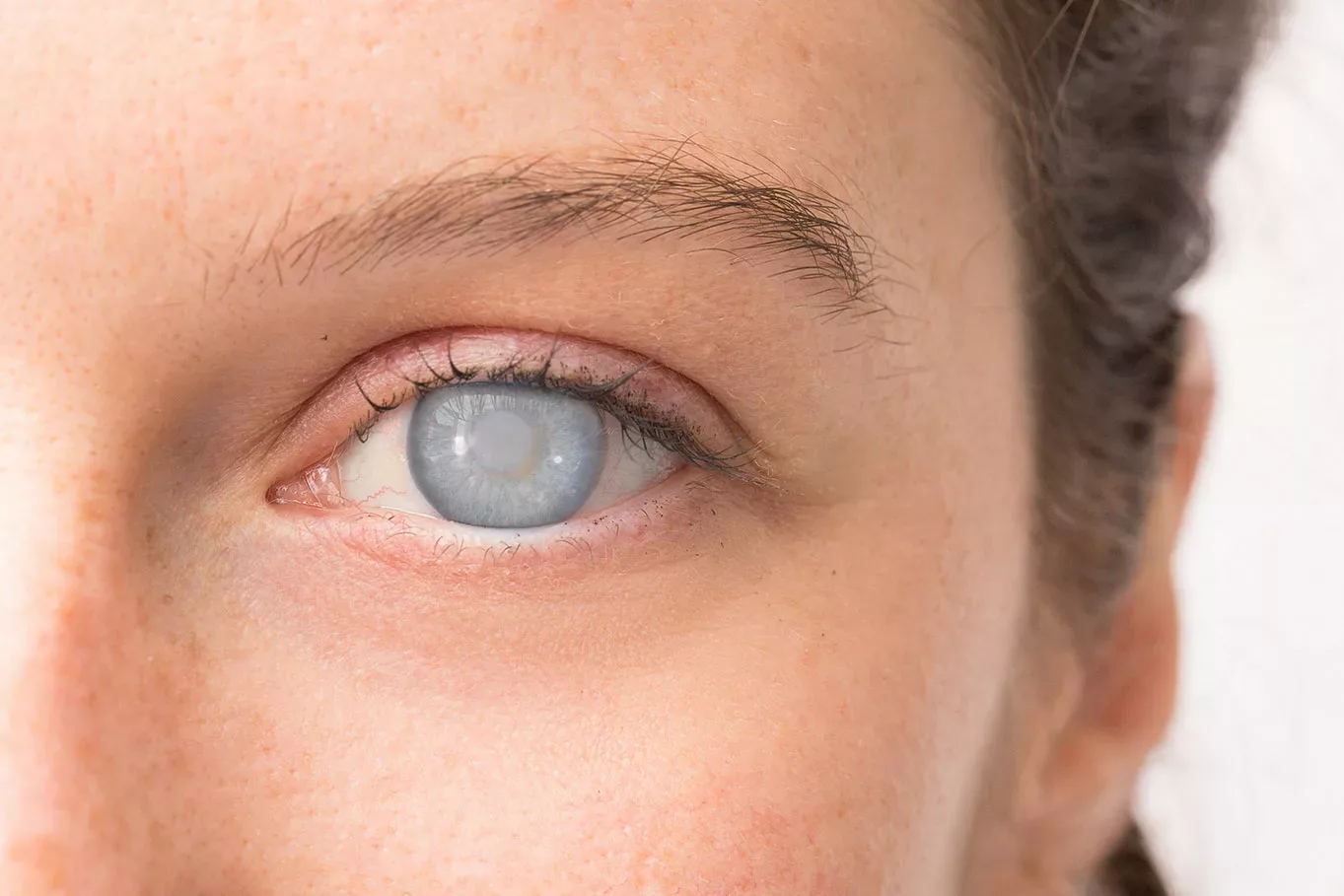

Cataracts
What are cataracts?
A cataract is a clouding of the lens of the eye. The lens is normally clear. Cataracts can occur in one or both eyes. Cataracts develop mostly in older people, but younger people can also get cataracts and, in rare cases, babies are born with a cataract (congenital cataract).
Cataracts are the leading cause of blindness in adults worldwide. In most cases cataracts can be successfully treated and vision restored.
What are the symptoms of cataracts?
Cataracts usually develop slowly, and you may not have any symptoms at first. They can affect one eye only or both eyes.
Eventually, cataracts can make your vision blurred or distorted, make you sensitive to light and glare, or give you the sense of seeing double. You may see ‘halos’ around lights or find that objects have a brown or yellow tinge.
If you have cataracts, you may also have trouble reading, driving at night or seeing faces or other details clearly.
Cataracts can change your eyes focusing power. If you find your eye glass prescription needs changing frequently, or your vision has changed, see your optometrist.
Cataracts don’t generally cause pain but the symptoms, such as sensitivity to light, may cause discomfort.
When cataracts are advanced, the pupil of the eye may appear grey or white.
What causes cataracts?
Cataracts are caused by changes to the lens of your eye, mostly associated with ageing and exposure to ultraviolet light.
Cataracts develop when proteins in the lens are damaged and clump together. This reduces the amount of light that can pass through the lens to the retina, which leads to a loss of vision.
As you get older it’s normal that these proteins in the lens of the eye start to break down and clump together. This causes the characteristic cloudiness in the lens that is a cataract.
Exposure to ultraviolet light also increases the risk of cataracts — experts think this happens through oxidative stress — the same process that causes skin damage from the sun.
Who is at risk of cataracts?
Most cataracts are associated with ageing — half of all Australians over 50 are affected, and by the age of 80, almost everyone develops cataracts. However, some people are more at risk of developing cataracts, including those who have:
- a family history of cataracts
- diabetes
- smoked
- used corticosteroid medicines for long periods
- spent a lot of time exposed to sunlight without good eye protection
- had eye injuries
- had some types of eye surgery (for example, a vitrectomy)
- had radiation treatment, such as for cancer
When should I see my doctor?
If you are experiencing some of the symptoms above, or your vision isn’t what it used to be, you should see an optometrist straight away.
Cataracts can usually be diagnosed in an eye examination.
Even if you don’t have vision problems, you should still visit an optometrist every 2 years since you can still have eye disease. The optometrist will give you a thorough eye examination. They may examine your eyes with a slit lamp (an instrument that uses a powerful microscope), which can show the location and pattern of a cataract.
How are cataracts treated?
Once you have cataracts, the lens of your eye will always be cloudy — it won’t recover.
Glasses and improved lighting may help to improve vision in the early stages of cataracts, but surgery is the only effective way to remove a cataract. Not all cataracts need to be removed, but if a cataract is affecting your everyday life, then your doctor or eye specialist may suggest you have surgery.
Cataract surgery
Surgical treatment of cataracts is very safe and painless. It usually involves removing the clouded lens and replacing it with an artificial clear lens. The procedure generally only requires a local anaesthetic and is carried out by an ophthalmologist. It usually takes about half an hour. If both eyes are affected, one eye is normally done first, and the other eye is done a few days or weeks later.
Cataract surgery is generally very successful in restoring vision. Once the clouded lens is replaced, a cataract won’t form again in that eye.
Some medications used for prostate problems in men can cause problems in cataract surgery. If you are seeing an ophthalmologist about cataracts and take medicines for prostate problems, make sure they are aware you are taking them.
Can cataracts be prevented?
While you can’t change some risk factors for cataracts, such as family history, there are some things you can do to prevent or slow down the development of cataracts:
- wear adequate sunglasses and a hat when outdoors to protect your eyes from ultraviolet radiation
- have regular eye examinations — they can detect cataracts at an early stage
- quit smoking
- if you have diabetes, maintaining good control of your blood sugar levels can reduce the risk


